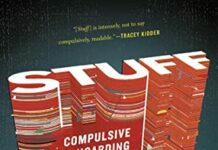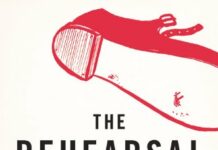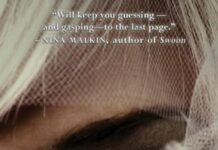
Ebook Info
- Published:
- Number of pages:
- Format: Epub
- File Size: 0.27 MB
- Authors: Bruce Machart
Description
Reminiscent of Kent Haruf and Cormac McCarthy, Bruce Machart’s debut novel is a dark family saga set in the American Southwest. On a moonless Texas night in 1895, an ambitious young landowner suffers the loss of “the only woman he’s ever been fond of” when his wife dies during childbirth with the couple’s fourth son, Karel. The boy is forever haunted by thoughts of the mother he never knew, by the bloodshot blame in his father’s eyes, and permanently marked by the yoke he and his brothers are forced to wear to plow the family fields. From an early age, Karel proves so talented on horseback that his father enlists him to ride in acreage-staked horseraces against his neighbors. In the winter of 1910, Karel rides in the ultimate high-stakes race against a powerful Spanish patriarch and his alluring daughters: hanging in the balance are his father’s fortune, his brothers’ futures, and his own fate.
User’s Reviews
Editorial Reviews: Review “A mesmerizing, mythic saga…”—New York Times “In his luminous and wrenching tale of four motherless brothers, Machart skillfully evokes the rural Texas landscape…”—Entertainment Weekly “Bruce Machart has penned a dazzling, gratifying tale of retribution, redemption and morality.”—San Antonio Express News “This is pure literature; an emphasis on language over plot; risky, complex and often unlikable characters and that echo, that ripple that flows forward into the future and backward into myth.”—Los Angeles Times “Such evocative prose helps make Machart’s novel a standout this year, in any genre.”—Cleveland Plain Dealer “Machart writes fine idiomatic dialogue and unwinds textured details of farm life, horse racing, and the vagaries of the weather.”—Houston Chronicle “The big state of Texas is home to many good writers, and the arrival of Bruce Machart’s debut novel shows there’s always room for one more.”—Dallas Morning News “Machart’s prose is so evocative that you can smell the men’s cheap tobacco and corn mash, feel the bare, hard-packed earth from which they coax crops. Their dialogue, rural south Texas vernacular, is spare, gnarled and often funny. In addition to the violence, betrayals and cruelty of an old-fashioned western, The Wake of Forgiveness also finds redemption …”–Wall Street Journal”This intense, fast-paced debut novel is hard to put down. Machart’s hard-hitting style is sure to capture fans of Cormac McCarthy and Jim Harrison. We can only hope for more exceptional fiction from this very talented writer. Enthusiastically recommended.”–STARRED, LIBRARY JOURNAL “… [an] accomplished debut … Machart’s moving story unfolds lyrically and sensually, with little fanfare, as his thoughtful prose propels a character-driven story about family, morality, and redemption.”–STARRED, PUBLISHERS WEEKLY “The Wake of Forgiveness impressed me on many levels. The prose is polished and evocative, the physicality of rural Texas in the year 1910 shimmers with loving exactitude, and the story of Karel Skala is a gripping American drama of misplaced guilt, familial struggle, and a search for identity. At the heart of this remarkable novel is a question that is both age-old and completely modern: Who am I? What a fine, rich, absorbing book.” — Tim O’Brien”If Evan S. Connell, William Faulkner, and Norman Maclean had been born as one person, he might possess the extraordinary gifts of Bruce Machart. The Wake of Forgiveness is a wild, God-forsaken cry delivered in language so lush we cannot stop listening. The dazzling velocity of Machart’s prose bears a tale redemptive and resonant as myth, insistent and intimate as breath in the body. With fierce grace and uncompromising passion, this visionary young writer offers the reader the mercy of his own heart and the capaciousness of mind that makes it possible to love the lost without fear or judgment.” –Melanie Rae Thon “In his richly told novel, The Wake of Forgiveness, Bruce Machart tells a story of fathers and sons that stretches wide across the Texas landscape, leaving behind its own beautiful wake of remembrance , inheritance, and the unbreakable bonds of family.”–Hannah Tinti From the Inside Flap On a moonless Texas night in 1895, an ambitious young landowner suffers the loss of the only woman he s ever been fond of when his wife dies while giving birth to the couple s fourth boy, Karel. From an early age, Karel proves so talented on horseback that his father enlists him to ride in acreage-staked races against his neighbors. But Karel is forever haunted by thoughts of the mother he never knew and the bloodshot blame in his father s eyes, and permanently marked by the yoke he and his brothers are forced to wear to plow the family fields. Confident only in the saddle, Karel is certain that the horse wants the whip the same way he wants his pop s strap . . . the closest he ever gets to his father s touch. In the winter of 1910, Karel rides in the ultimate high-stakes race against a powerful Spanish patriarch and his alluring daughters. Hanging in the balance are his father s fortune, his brother s futures, and his own fate. Fourteen years later, with the stake of the race still driven hard between him and his brothers, Karel is finally forced to dress the wounds of his past and salvage the tattered fabric of his family.Reminiscent of Kent Haruf s portrayals of hope amidst human heartbreak and Cormac McCarthy s finely hewn evocations of the American Southwest, Bruce Machart s striking debut is as well wrought as it is riveting. It compels us to consider the inescapable connections between sons and their mothers, between landscape and family, and between remembrance and redemption.” From the Back Cover On a moonless Texas night in 1895, an ambitious young landowner suffers the loss of “the only woman he’s ever been fond of” when his wife dies while giving birth to the couple’s fourth boy, Karel. From an early age, Karel proves so talented on horseback that his father enlists him to ride in acreage-staked races against his neighbors. But Karel is forever haunted by thoughts of the mother he never knew and the bloodshot blame in his father’s eyes, and permanently marked by the yoke he and his brothers are forced to wear to plow the family fields. Confident only in the saddle, Karel is certain that the horse “wants the whip the same way he wants his pop’s strap . . . the closest he ever gets to his father’s touch.” In the winter of 1910, Karel rides in the ultimate high-stakes race against a powerful Spanish patriarch and his alluring daughters. Hanging in the balance are his father’s fortune, his brother’s futures, and his own fate. Fourteen years later, with the stake of the race still driven hard between him and his brothers, Karel is finally forced to dress the wounds of his past and salvage the tattered fabric of his family. Reminiscent of Kent Haruf’s portrayals of hope amidst human heartbreak and Cormac McCarthy’s finely hewn evocations of the American Southwest, Bruce Machart’s striking debut is as well wrought as it is riveting. It compels us to consider the inescapable connections between sons and their mothers, between landscape and family, and between remembrance and redemption. About the Author BRUCE MACHART is the author of The Wake of Forgiveness. His fiction has appeared in Zoetrope: All-Story, Glimmer Train, Story, One Story and elsewhere, and has been anthologized in Best Stories of the American West. A graduate of the MFA program at Ohio State University, Machart is Assistant Professor of English at Bridgewater State University, and he lives in Hamilton, Massachusetts. Excerpt. © Reprinted by permission. All rights reserved. THE BLOOD HAD COME hard from her, so much of it that, when Vaclav Skala awoke in wet bed linens to find her curled up against him on her side, moaning and glazed with sweat, rosary beads twisted around her clenched fingers, he smiled at the thought that she’d finally broken her water. He pulled back the quilt, a wedding gift sent six years before from his mother in the old country, and kissed Klara on the forehead before climbing from bed to light the lamp. He struck a match, and there it was, streaked down his legs and matted in the coarse hair on his thighs = dark and half-dried smears of his wife’s blood. And it kept coming. He saddled his horse and rode shivering under a cloudless midnight sky to the Janek farm to fetch Edna, the midwife. By the time they made it back, Klara’s eyes were open but glazed in such a way that they knew she wasn’t seeing through them anymore. Her pale lips moved without giving voice to her final prayer, which entreated the child to come or her own spirit to stay, either one. When the baby arrived, their fourth boy, blood slicked and clot flecked, he appeared to have been as much ripped from flesh as born of it. Klara was lost, and Edna tended to what had been saved, pinching the little thing’s toe to get the breathing started, cleaning him with a rag dipped in warm milk and water, wrapping him in a blanket. Vaclav Skala stood at the foot of the bed, grinding his back teeth slowly against a stringy mash of tobacco he’d chewed flavorless half an hour before. He watched Edna, a slight young woman with narrow hips and long hair as black as her eyes. She bunched pillows beneath the dead woman’s shoulder blades and behind her head before resting the baby on his mother’s stomach. Taking one of Klara’s breasts between her thumb and finger, she puckered the nipple so the baby could get hold of it. The little thing threw his hands up about his face and worked his legs beneath the blanket, and Edna held him unremittingly to the breast until he hollowed his cheeks and found it with his mouth. “It’s no hind milk in her yet,” she said, “but he might get some of the yellow mother’s milk. We’ll be needing a wet nurse. It’s several up county who might do it.” Vaclav stepped back into the doorway and looked down the dark hallway toward the room where his other three boys were sleeping. “We’ll be needing a hell of a lot more than that,” he said. “Let him get what’s left of her if he can. He’s done taken the rest.”Just before dawn, after Edna had washed the body and wrapped it in clean bedding, Vaclav carried it out and up into the loft of the barn so the boys wouldn’t find her when they woke. Then he dragged the drenched mattress from the house and out through the young pear grove to the hard-caked plot of earth where he planned one day to build his stable. There, beneath the wash kettle, he kindled a fire with last year’s fallen mesquite branches. The mattress was soaked through and heavier than Klara’s body had been, and Vaclav found himself cursing its weight even while he recalled how Klara had stitched the ticking and stuffed it with goose feathers before their wedding night; how, when he lay pressed for the first time between her tender skin and the soft warmth of the bed she’d made for him, he’d startled his bride, so loud was his laugh. Now, as the horizon gave way to the pink glow of another south Texas dawn and the mockingbirds came to life in the pear grove, Vaclav worked his knife along the mattress seam, undoing his wife’s work, as he would find himself doing for years. With several inches of the stitching cut away, he reached in and pulled out the feathers, one bloody handful after another, and fed them to the fire, which spat and sizzled before blazing into yellow flames and thick white billows of smoke. In the near pasture, the cattle stood lowing against the fence, and had Vaclav been paying attention the way he usually did, he would have puzzled at their behavior, wondering what it was that kept them clustered against the fenceline instead of in the center of the parcel near the three square bales of hay he’d set out for them the day before. Instead, he stood staring into the fire, adding the steady fuel of feathers, looking into the flames so he wouldn’t have cause to look at his hands, which were chapped and creased deeply with calluses and stained with the blood of the only woman he’d ever been fond of. The townsfolk would assume, from this day forward, that Klara’s death had turned a gentle man bitter and hard, but the truth, Vaclav knew, was that her absence only rendered him, again, the man he’d been before he’d met her, one only her proximity had ever softened. He’d known land in his life that, before a few seasons of regular rainfall, had been hard enough to crack a plow point, and he knew that if, by stubbornness or circumstance, that earth became yours to farm, you’d do well to live with the constant understanding that, in time, absent the work of swollen clouds and providence, your boots would fall loudly, giving rise to dust, when you walked your fields. With the sun breaking clear of the horizon and the ticking gutted of its down, Vaclav whittled his knife against a brick of lye soap and added a handful of shavings to the boiling kettle water. He squinted against the sharp fumes of Klara’s strong soap, and when he got the bloodstained ticking into the kettle, the water roiled and frothed red like so much sick stew. Softly, a cool wind came up from the north and swirled the smoke around the kettle and out into the newly lit morning. Across the pasture, hidden in the far hedgerow near the creekside stand of trees, three half-starved coyotes raised their twitching snouts to catch a breeze laced of a sudden with the hot, iron-rich scent of blood. Their mouths flooded with anticipation as they hunkered their bellies low and inched forward, shifting their feet beneath them and waiting, their reticence born more of caution than patience. In the pasture, the cows went to lowing again, pressing themselves together against the fencewires. With a twisted mesquite branch, Vaclav moved the ticking around in the boiling liquid and then threw that wood, too, on the fire. When he turned toward the house and weaved his way through the grove, he found the back door swung open, his three young boys standing just inside wearing nightclothes and wet cheeks. The oldest, Stanislav, was only five, but he held on to his brothers’ shoulders the way a father would. The wind gusted enough to ripple -Vaclav’s shirt, and when it calmed he heard the baby crying inside. Standing in the bare yard, he took his plug of tobacco from his shirt pocket and tore off a portion with his teeth. Edna appeared behind the boys and turned them away from the door. “Their breakfast’s gone cold on the table,” she said. “They’re asking after her.” He nodded and spit tobacco juice into the hard earth near the porch, and then, without washing his hands or taking off his boots, he stepped into the house where, for all but one wailing newborn, as in the pasture and the hedgerows, even hunger had been plowed under by fear. Read more
Reviews from Amazon users which were colected at the time this book was published on the website:
⭐The writing in this book is amazing and doesn’t lag, thus the four stars. The one scene that took my breath away was from the point of view of an owl, swooping over the countryside at night. Beyond that, I kept reading, despite the grim nature of the story and the deeply flawed characters, because I still wanted to know what happened next. I did not love the book, however, because of some of the plot decisions (spoilers ahead). It is not at all clear why the sophisticated and wealthy Villasenor wants to marry his three beautiful daughters to the deformed and nearly feral Skala boys. It is completely implausible to me that Villasenor, a proud, protective, and presumably Catholic father, would allow his young daughter the freedom to go off and have sex with the youngest Skala, Karel, or that she would particularly want to, given the battered stew his face is from the horse race and fist fight with his brothers. And when one of his brother’s barn is burned to the ground with all of his horses inside, due to Karel hiring twin brothers who go on a spree of destructions, rather than recriminations he gets a stoic, nearly wordless welcome from his brothers from whom he’s been estranged for more than a decade – thus the forgiveness in the title. Mr Machart can certainly write with great vividness and power. This is does not completely offset lack of convincing motivations and behaviors of his characters.
⭐[note: plot spoilers]Quite a few people have reviewed this book already, so I will limit myself to a few specific observations. I have rated this book four stars, which is a high grade for fiction from me since there is so much utter crap out there.My own tastes run to tales of the collapse of people’s hopes and dreams and the bleak existence that comes with adulthood (think Ethan Frome – I am a lot of fun at parties), so The Wake of Forgiveness was right up my alley.A number of people have compared Machart to McCarthy and I have to agree. However, I see McCarthy as more of a prose minimalist, while Machart veers in the opposite direction, never using one adjective when three will do, and piling on the metaphors and similes. That’s OK, but I can see why some reviewers think this is a bit overwritten. (I also note that one reviewer believes comparing Machart to McCarthy identifies me as “coastal, urban, and effete”; I guess I have to take my medicine…)I confess I had a hard time completely understanding the central plot element. Why did Villasnor approach Skala for his sons’ hands in marriage in the first place? What made this weird and bitter family stand out from any other in the region, especially since Villasnor is portrayed as wealthy, powerful, and ambitious? My gut feeling is that he would have looked for more promising matches for his daughters.Another curiosity for me was that all the horse races were run at night, the racecourse lit by bonfires. Now, to be sure, this added greatly to the atmosphere and mood of these events, but it does strike me as odd that this community of hard bitten Texas farmers would have willingly participated in something so bizarre as racing horses in the dark.But over all, I loved The Wake of Forgiveness. The characters were compelling, and the sense of time and place vivid. I read it straight through in a single weekend, staying up late in bed and then continuing as soon as I woke up the next morning. I will definitely be on the lookout for more from this promising author.
⭐”This is the blood-lust of brothers, the vengeful rage of the father, all of it born out and somehow flawless in its wickedness, like some depraved reenactment of Genesis staged solely for the amusement of reprobates.”That one sentence from Bruce Machart’s The Wake of Forgiveness encapsulates the book but does not do justice to the strange beauty of this book. When Karel was born, the fourth son of Vaclav Skala a Czech imigrant to Texas, his mother died and that seemed to twist his father’s Skala’s soul. Skala sought land and horses, for racing not drawing the plow, for this he used his boys. Which warped them, with their heads and necks permanently tilting right or left depending on the side they were harassed on.One would expect them to be close relying on each other to fight against their father and the injustice of their existence, but a fateful bet was to render that asunder and Karel the jockey comes down on the side opposite his brothers who see a way of escaping their father.The book moves back and forth between the past 1895 to 1910 and before and the present the 1920’s, helping to maintain an air of mystery of what happened. There are times when the movement can be a bit disconcerting to the reader, even though this reader is fond of books which shift between times.I love the title of the book The Wake of Forgiveness. One thinks of the verb wake, to emerge from sleep or the noun as it is used in the title a vigil for the dead or the trail of water from a ship. Shall we lay to rest forgiveness or arise from the water following the great vessel of forgiveness? The answer can be found in this book, with its wonderful twisted characters.
Keywords
Free Download The Wake Of Forgiveness in Epub format
The Wake Of Forgiveness Epub Free Download
Download The Wake Of Forgiveness Epub Free
The Wake Of Forgiveness Epub Free Download
Download The Wake Of Forgiveness Epub
Free Download Ebook The Wake Of Forgiveness





